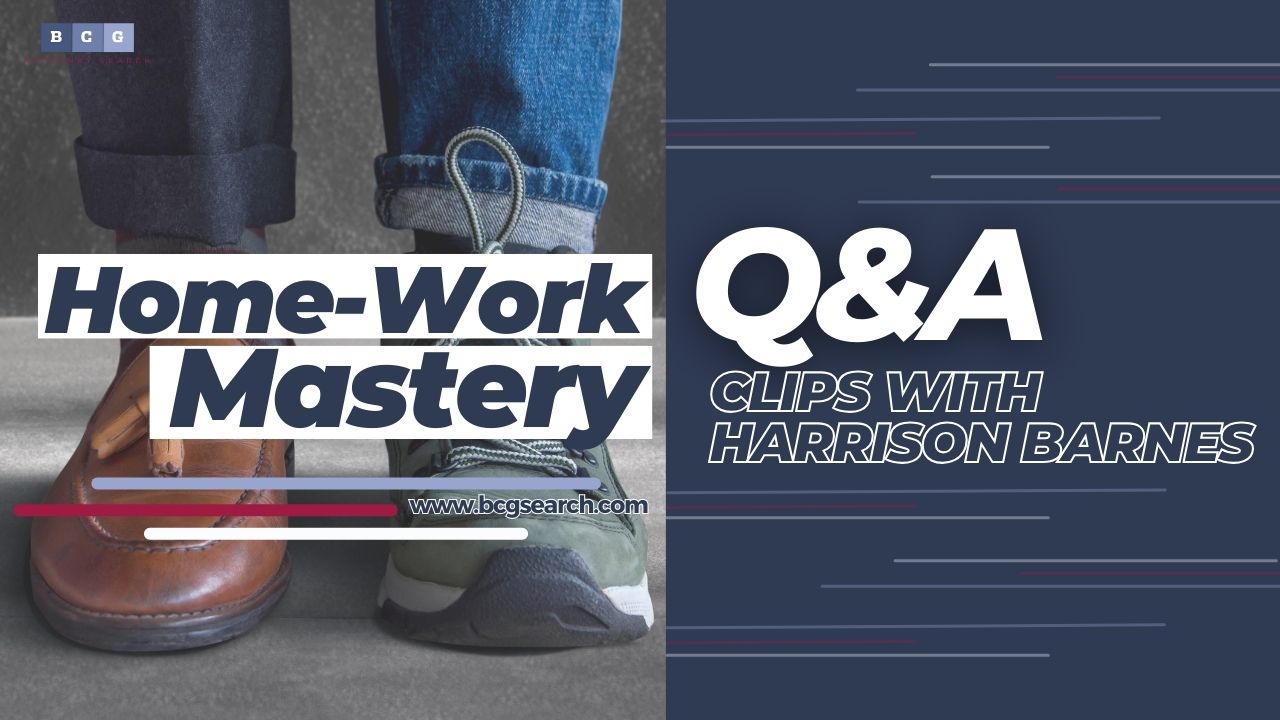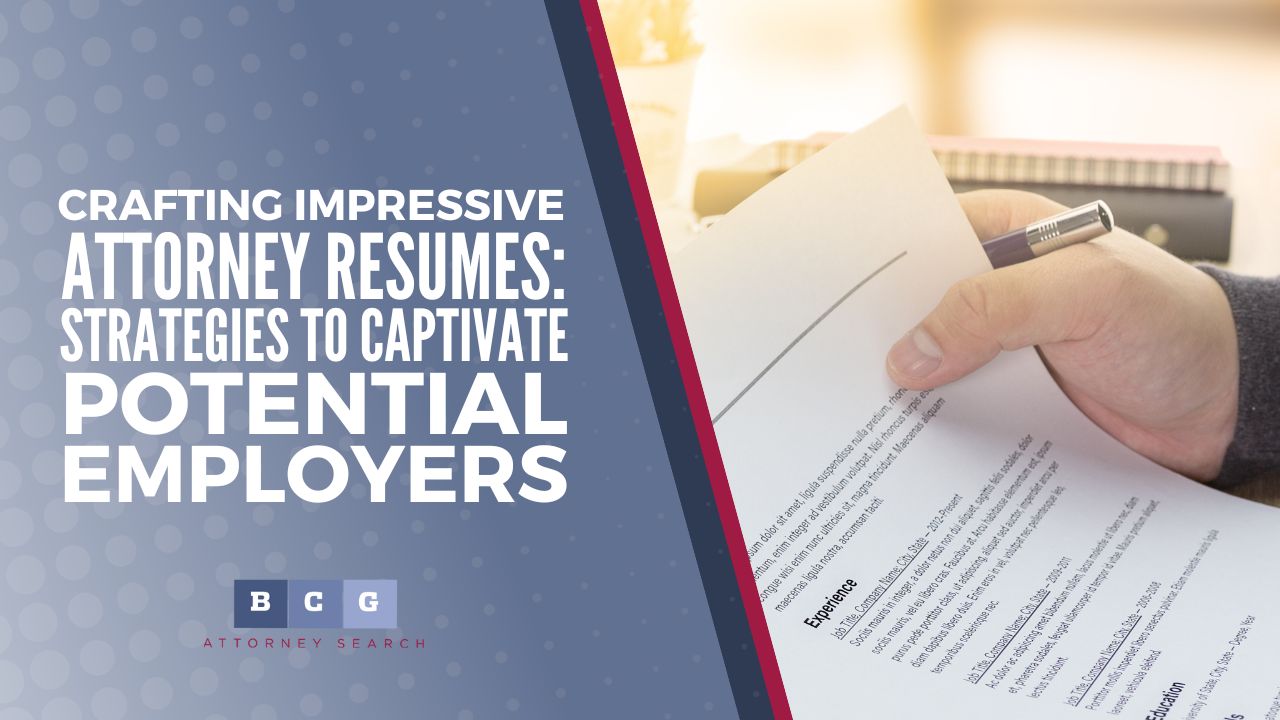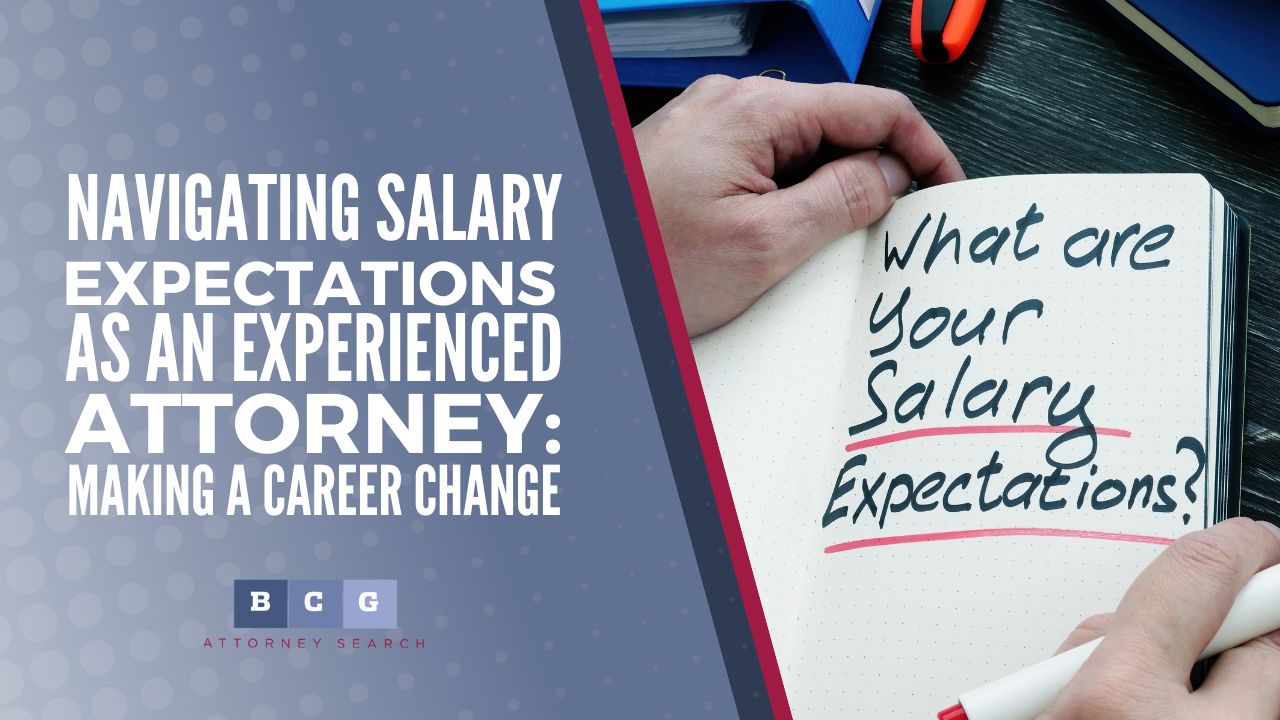Discovering In-Demand Specializations for Your Career
Description
- Identifying Specializations: Harrison explores how to identify niche specializations that are personally fulfilling and in-demand within the current job market.
- Research and Networking: Emphasizes the importance of asking questions, networking, observing industry trends, and learning from various sources to find the right career path.
- Transactional vs. Litigation: Differentiates between transactional and litigation attorneys, highlighting that individuals tend to gravitate towards one based on their natural inclinations and skills.
- Client Focus and Independence: Considers whether one is inclined towards serving corporate entities or individuals, as well as the preference for working independently or collaboratively.
- Effective Marketing Strategies: Advises on effective marketing tactics beyond traditional methods, such as sending physical resumes, exploring untapped job opportunities, and creating a unique professional image to stand out in the legal field.
Transcript:
How can we identify a niche specialization? This question is personally fulfilling and in demand within the current small job market. Okay. So you have to. A lot of this is about asking questions about what people are doing about networking and figuring out how people are doing things right and doing things in business.
It's about seeing what's in the market. It's talking to a lot of people. The big problem that many people face is they go into their careers and decide that, for whatever reason, they want to do a specific type of law. They want to do corporate law, or they want to do real estate law, or they want to do whatever, just because maybe they had an interest in it at one point, or they knew someone, or whatever.
And so, to do that, you need to get exposed to as much as possible. You should be. Reading, you should be trying to talk to lawyers doing different things. It would help if you were going to talks and you need to get into many different things to learn that stuff. But I will tell you a couple of points that I think are important to guide people in terms of your practice area and what you want to do. This may or may not help you, but I think this is something that I tell many people.
So, you have transactional attorneys. Attorneys, and then you have, then you transnational, I need to learn how to spell, Actional attorneys, and then you have transactional attorneys, and then you have litigation, I guess litigation, and then I'll talk about this a little more. Then, you have attorneys motivated by serving others or in the companies.
And then those serving people. So these are just some examples. And I'll explain to you why I'm giving you this information in a minute. And this is so you can understand what you'll do well in, which is why I'm telling you all this. Okay. So transactional attorneys are people who do things like real estate.
They do corporate; they may do, I don't know, different types of transactional-related things. So transactional. I'll just show you real quick here. These would be out of these practice areas; all these corporate things would be transactions and bankruptcy, which are unrelated. All these corporate things would be data privacy and transactional.
It would be a transactional ledger power. It would be. Environmental land use and transactions and compliance would be financed. It would be, so you get the idea. So anything transactional is going to be different than doing transactions, and then you keep it like doing that's documenting things and being careful, et cetera, et cetera.
So that's what that is. And then you have litigation. That's what is litigation-related. Litigation related is going to be when you get into this stuff, it's just so you can just see, again, it's going to be data privacy litigation. It's going to be construction litigation and plaintiff and defendant.
And then it will be so that you can see all these things. Then you have litigation. Look how, and I just want you to get a sense. And this is what I do all day, by the way. If anybody's interested in this kind of stuff, very few people are, but I look at attorneys, and I categorize them. And then you have litigation, all these different types of litigation.
It's just huge. There's so much in litigation. So here's my point. My point is you have litigation-related fighting, et cetera, and then fighting with words. And then you have a transaction. So, from your and everyone's standpoint, you understand your natural fit.
People that like math and science. Math, science, et cetera, tend to do better at transactional work than that, which tends to be where they gravitate towards naturally, meaning that they're given a choice between doing a math problem and writing a short story or arguing a point or something they would much prefer to do.
Do the math problem or the other one, depending on the related litigation. And so these tend to be verbal things, which are like English languages. You get the idea, English, political science, et cetera, psychology, all those things. So, whatever you're best at, you will gravitate towards one thing.
So, your practice areas should be related to a transactional or litigation attorney. So you have those two different paths. So that's very important. Like, how do you choose? It will only be personally fulfilling if you're doing something. So, I would hate to sit down and write transactional documents for the rest of my career.
That would, would be suicidal-level dislike. It doesn't mean that's just me. Litigation is precisely that. It's up my alley. That's exactly what I like, or anything to do with litigation, writing, and coming up with clever work. That's what I like. So you are either one or the other, most people. So, you need to pick a transactional litigated practice area.
Within those practice areas, you have people motivated by working for others. So what does that mean? People feel important. Working on behalf of a big corporation or representing feels important. They are critical in working for essential people. So that's a big deal to them. They feel they want their servants.
They want to help them. They want to help the companies and the big businesses and things they're working for to get them turned on and excited. They feel like a big deal. And they feel like they're able to protect people or companies, and that makes them excited.
People will either be motivated by others that are more important or sometimes people are motivated by less important things, which should be personal injury and all that sort of stuff or criminal. And so you have to go. You'll have the motivation to work for people, or you have the motivation to work with less critical people.
You have more important people, and you just have to understand that. And then you also have, are you independent? Independent, meaning do you want to do things on your own or are you, do you want to be around others, work collaboratively, so that means do you want to be your boss and you want just to have every, all the attention come to you or do you want, so these are the three things that you need to look at when you're choosing something.
So you have transaction-related or litigation-related. That's the first thing. So you have to decide what box you're going to go there. And often, unhappy people are just in the wrong; they should be doing trans, they should be doing litigation, and they're transactional, they should be doing whatever.
And then working for others. That's the second point. So are you going to be happier basically helping others and being there in terms of the more important, and you're going to pick up the pieces for them and advise them? They will call you on the phone and ask you legal questions; you will feel important doing that.
Or are you going to want to help them? People are injured and criminals and stuff, and then are you going to be? Do you want to be independent, or do you want to be around others? So, all these choices will affect what you should be doing, and you need to pick something that matches that. And so a lot of people don't give this any thought.
When I was working in the summer, my second year, when the law firm was going to make offers, they were saying, Are we going to make the offers for people that are in? Do you want to be corporate, or do you want to be this? And if I'd stayed at that New York firm, I would have had to have been a corporate attorney, which doesn't match what I like to do.
So you have to decide what practice area you want to be in. Then, you have to decide if it makes you happy, and then you decide what kind of clients you want to work for. And then you decide how you want to work. Do you want to have your firm and be independent or do you want, or do you want to be around others?
And those are the three decisions. So that. It's how you decide what specialty you want to be in. And regardless of what you choose, there's always work. There's plenty of work. You just have to know how to use the ways I was showing you to find places to work and the right places; that's pretty much how it works.
Okay. This is a good question. I appreciate all these questions a lot, by the way, because these help a lot of people. So what the heck's going on there? Okay. So the next question is, what does marketing look like? Is it simplest to email and make connections to attorneys? No. So marketing, I answered that earlier.
Sorry. If you have this ineffective marketing, then you have effective marketing. So, your marketing is making sure that you get yourself out there. So, you must figure out how to market your service in the best way possible. Is it? Look at all the things companies do to get attention or businesses to get attention for themselves.
They send things in the mail. In the time I've been sitting here in the past 20 minutes, I've gotten three robocalls or something. That's, and so people will do all sorts of things, but you must do things effectively. So basically, package your product. You say this is what practice here I'm in.
This is what my expertise is in. Then, you start doing everything correctly by applying for jobs on LinkedIn. And indeed, that's something that you should do. There's nothing wrong with applying to openings. There's nothing wrong with any of this stuff, but practical is going to be doing things other people aren't doing.
So, it's applying to places without openings. And there's a hundred of these places in most markets. So, no one is doing that. So why wouldn't you market yourself? To someone not being marketed to, as opposed to someone getting a lot of marketing. You need to find a better chance of getting a job and finding a good place if you're marketing to places that are.
Actively seeking things, just think about it. If someone walked into my office and said, Hey, I want to be a legal creator, like I've dreamed about it since I've been young. Would you give me a shot or something? I would say this is the first time anyone's ever done that. One person did. People just don't think like that.
They think in terms of their ego and how it will look and all this stuff. So, applying to places without openings, dropping your resume off, or sending it through the mail and not email is enormous. If someone sends me a letter like their resume, I haven't seen one of those in 10 years, but if I got one, I would look at it and put it on my desk and think, maybe there's some way I can use this person.
And then LawCrossing again, full disclosure, it's my company, but the only thing it does is it goes out and advertise and looks for advertised jobs that find them on their website or little bar association things and sites and stuff. So, these are jobs that are not typically getting a lot of applications.
So that's very helpful. And then effective would be doing things as I told you, writing articles and our papers or finding things written by others and all these sorts of things and finding a hungry market; that's what marketing looks like. Marketing is saying something different than, Hey, can I work for you with that email?
Marketing is crafting a message that works and getting people's attention. That's it. So, if you do that effectively, then you mark what it looks like. And I wish people would do that. And so many people don't get jobs or need to get enough of what they should do. It's wild.




